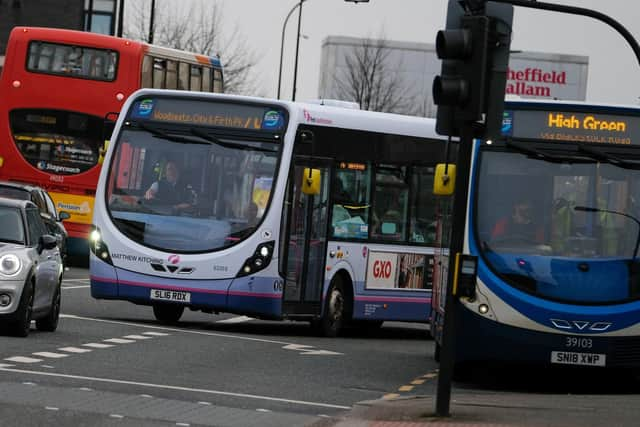Cuts to bus provision between 2011 and 2023 were 10 times higher in England’s most deprived than its least deprived areas. That’s according to analysis by a leading think tank IPPR North
Cuts to bus provision saw the annual bus miles driven per head in England fall from 25 to 18 miles between 2011 and 2023. They say that this has been “environmentally, socially, and economically damaging”.
Analysis shows that bus cuts have led to An estimated 1.1 billion extra miles driven in cars and taxis in 2023 alone – equivalent to driving around the earth’s circumference 44,000 times with an environmental cost of 292 million kg in greenhouse gases.
People living in the most deprived areas of England seeing a ten times larger cut to bus provision than those in the least deprived areas says the research while the economy being £2.6 billion smaller, with 39,000 fewer jobs thanks to a drop in the economic contribution of buses.
If bus provision had not fallen between 2011 and 2023, there would have been an additional 395 million miles of bus provision in England in 2023, bringing environmental, social and economic benefits. This is why buses, with over 3 billion trips in England annually, are so important for local communities and national success, experts at IPPR North say.
Researchers explain that putting buses into the hands of local leaders is the first step to unlocking their potential. They point to Greater Manchester, a combined authority which is turning its bus network around and has pioneered policies like the popular £2 fare cap. Today IPPR North are publishing research showing what can be learnt from Greater Manchester’s journey to improving buses through franchising, and they say that the Better Buses Bill is the government’s chance for the rest of the country to see better, greener buses in their community too.
Senior research fellow at IPPR North, Marcus Johns commented:
“Neglecting England’s buses has had serious environmental, social and economic consequences, which have not been felt equally.
“After years of decline, it’s time to turn buses around so that they can help grow our economy, connect people to opportunities, and reduce our emissions. The Bus Services Bill is a crucial chance to achieve this change. By devolving powers, supporting local leaders, investing in buses, and decarbonising the bus fleet faster, it should help rebuild local bus networks.







